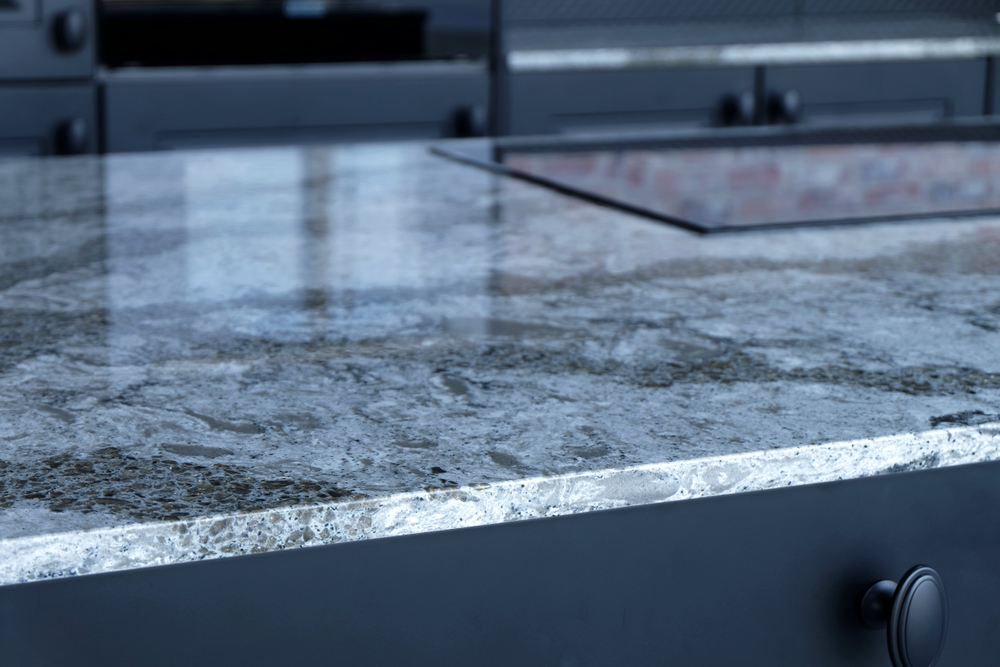Are you experiencing difficulties choosing natural stone vs engineered stone countertops for your home? You are not alone; many people find it hard to decide too. The truth is that we always want the best whenever we remodel our homes. However, we often look at the cost, durability, and material we think is beautiful.
Every homeowner desires to renovate kitchens and bathrooms to make them look clean and increase resale value. But first, you must decide which stone to use on countertops. Being keen on the pros and cons of each stone goes a long way in making the best choice you will be happy with later.
Learn more about natural stone vs. engineered stone countertops for your home. Share on XPros & Cons of Natural Stone
What are the pros of natural stone?
- Uniqueness: Natural stone is unique, so countertops made from natural stones will have different veining, patterns, and variations.
- Versatility: Since the stones come from quarries worldwide, they come in many colors and patterns. Besides, you can pick the region to source your countertop.
- High Resale Value: Natural stones, such as granite countertops, are excellent for resale value, particularly when renovating your home with a plan to sell it.
What are the cons of natural stone?
- Heavy: Natural stone is heavy, so moving it in bulk is costly. Also, natural stone countertops require structural reinforcement before installing floors and cabinets.
- Highly Porous: Natural stone is porous and is prone to etching, scratching, and wearing out. Also, pigmented liquids and acids may cause permanent damage.
- High Maintenance: Natural stones also require sealing and regular cleaning to maintain aesthetics. Failure to maintain it can compromise its beauty.
Pros & Cons of Engineered Stone
What are the pros of engineered stone?
- Highly Uniform: Engineered stone is highly uniform. The pieces of stone have the same pattern to create consistent surfaces over a larger area.
- Very Affordable: Engineered stone is affordable. It is cost-effective compared to natural stone, which is expensive depending on the quality of the material.
- Eco-Friendly: Since engineered stone is synthetic, you can recycle it, reducing wastage. Conversely, natural stones can get depleted with continuous mining.
What are the cons of engineered stone?
- Heat Damage: Sudden temperature changes can permanently damage engineered stone since it is not heat resistant.
- Uniformity: Being uniform has pros and cons for a homeowner. The lack of uniqueness makes engineered stone looks more plastic than stone.
Make a Decision Based on Needs
Every countertop material has advantages and drawbacks, so you should choose what to install in your kitchen or bathroom based on your needs. It’s ideal to consider your style and preferences, whether it’s granite or quartz countertops. The bottom line is to ensure that the countertop material complements your home’s interior design.
Upgrade Your Home with the Right Stone Countertop
So far, you know the features of natural stone vs engineered stone countertops. They both have advantages and disadvantages, so upgrade your home with the right stone countertop, depending on your preference. If you’re to sell your home at a higher value soon, consider countertops made from natural stone. R&D Marble can help you to get started with a quote.
Connect with us for more information on natural and engineered stone products.







![6 Stunning Stone Kitchen Countertop Color Ideas [Infographic]](https://www.rdmarble.com/site/wp-content/uploads/2024/06/In-home-floors-2-400x250.jpg)